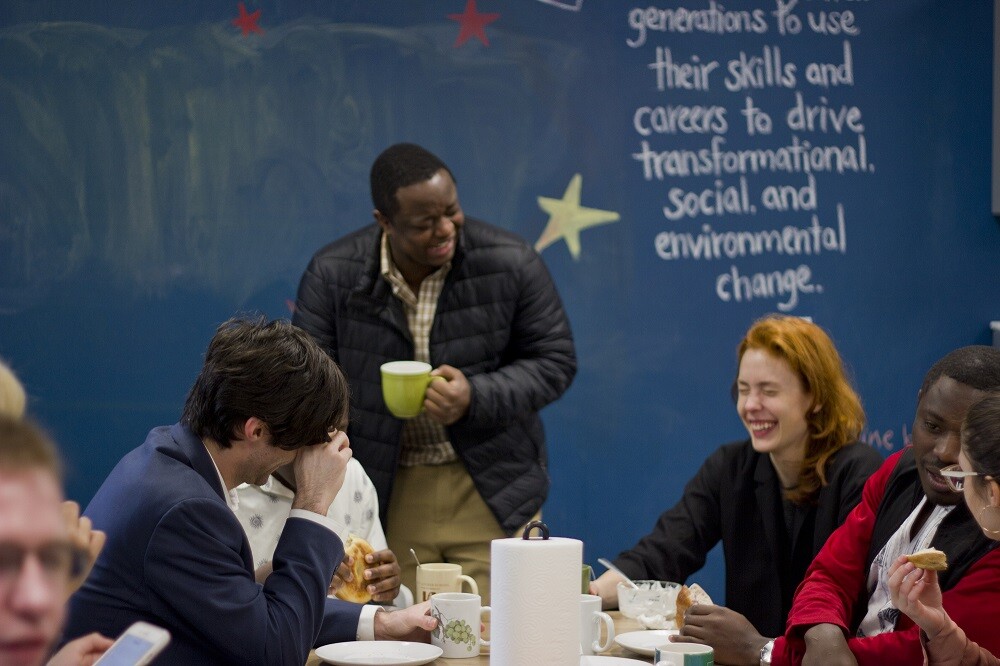And the winner of the 2018 Food Solutions Challenge is...

In this year’s Food Solutions Challenge, teams from around the world were asked to address a topic that has a major impact on the food supply and on climate: food loss. Food loss, meaning food wasted before it reaches a consumer, accounts for 64% of all edible food that is lost. When food is wasted at the farm, in harvesting, in production, and in transportation, we lose both edible food and also the climate-changing environmental resources that went into producing it.
Between November 2017 and March 2018, 63 Food Solutions events were held in universities and communities around the world, resulting in 133 ideas submitted. Proposals addressed how to reduce surplus production on the farm in the United States, how to reduce postharvest loss of Cassava in Nigeria, and how to better adopt the Food Loss and Waste Standard. Semifinalists were invited to attend the 2018 Net Impact Accelerator in Oakland, CA in April. Participating teams received training by design thinking consultants, improved their solutions, and learned transferable skills. We are excited to announce the first, second, and third place winners of the 2018 Food Solution Challenge. Read below about each team’s idea and watch the videos they created:
Winner
Iowa State University
The team from Iowa State University proposed creating a new genetically modified cassava variety that will substantially reduce the amount of cassava that is wasted post harvest. Currently, cassava goes bad after ~72 hours of cultivation and to stop deterioration, fresh cassava is dipped in wax after harvest. The Iowa State team wants to create a cassava variety that naturally creates a waxy barrier to extend shelf life from 3 to 14 days.
Second place
Ashoka University
To address post harvest cassava loss, the entrepreneurial minded team from Ashoka University wants to create a business they are calling StoreEasy. Cassava that is stored in wooden boxes between alternating layers of sawdust can reduce postharvest loss of cassava from 3 days to 4 weeks. StoreEasy would sell and rent wooden boxes filled with sawdust to cassava farmers.
Third place
Bard College
The team from Bard College developed a plan to reduce food loss working with breweries to reclaim spent grains. Breweries produce more than 750 million pounds of spent grain; of that 70% is used to feed animals while the other 30% is sent to the landfill. The team wants to redirect that byproduct and transform it into edible granola and other food items.
Congratulations to the winners and to all who participated in this program! We are excited to see the progress these teams make.




